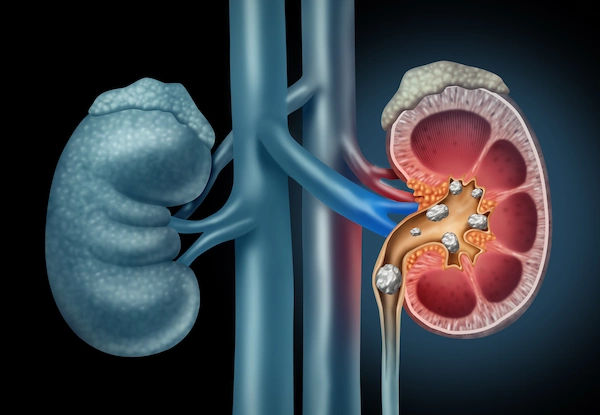Your Complete Guide to Kidney Transplant: Process, Risks & Recovery
Know about the kidney transplant, process, risks and recovery. Learn about what it is, risks, complications, causes, what to expect from a kidney transplant and more.

Written by Dr. M L Ezhilarasan
Reviewed by Dr. Rohinipriyanka Pondugula MBBS
Last updated on 13th Jan, 2026

Introduction
A kidney transplant is more than a surgical procedure; it's a life-changing event that offers a new beginning for individuals with end-stage renal disease (ESRD). It represents the closest alternative to restored kidney function, often providing a significantly better quality of life and longer survival compared to long-term dialysis. However, the path to a successful transplant is a detailed journey, filled with evaluations, waiting, and a lifelong commitment to health management.
This comprehensive guide is designed to demystify the entire process. We will walk you through everything from determining if you’re a candidate and finding a donor to navigating the surgery and thriving in the years that follow.
What is a Kidney Transplant?
A kidney transplant is a surgical procedure where a healthy kidney from a donor is placed into a person whose kidneys no longer function properly. The new kidney takes over the job of filtering blood and removing waste from the body, effectively replacing the failed organs.
Consult a Nephrologist for Personalised Advice
How a Transplant Differs from Dialysis
While both are treatments for kidney failure, they are fundamentally different. Dialysis is a mechanical process that artificially filters your blood, typically requiring sessions several times a week. It manages the symptoms but does not cure kidney disease. A transplant, on the other hand, aims to restore near-normal kidney function. It is a more permanent solution that frees patients from the rigorous schedule of dialysis, allows for a less restrictive diet, and often leads to increased energy levels and overall well-being.
Who is a Candidate for a Kidney Transplant?
Not everyone with kidney failure is automatically eligible for a transplant. The evaluation process is rigorous to ensure the highest chance of success and patient safety.
Medical Criteria for Eligibility
Generally, candidates are those with ESRD who are healthy enough to withstand major surgery and a lifetime of immunosuppressive medications. Ideal candidates are without active or recent cancer, severe heart disease, or active infections. Age alone is not a barrier; overall health is the primary factor.
Common Reasons for a Transplant (ESRD Causes)
The most common conditions leading to ESRD and the need for a transplant include:
- Diabetes: The leading cause of kidney failure.
- High Blood Pressure (Hypertension): Uncontrolled hypertension can severely damage the kidneys over time.
- Polycystic Kidney Disease (PKD): A genetic disorder causing cysts to grow in the kidneys.
- Glomerulonephritis: Inflammation of the kidney's filtering units (glomeruli).
If you have been diagnosed with ESRD, consulting a nephrologist online with Apollo24|7 is a crucial first step to discuss if a transplant is a viable option for you.
The Two Types of Kidney Donors
Understanding where the donor kidney comes from is a key part of the process.
The Advantages of a Living Donor Transplant
A living donor transplant involves receiving a kidney from a healthy living person, often a family member, friend, or sometimes an altruistic stranger.
This path offers significant advantages:
- Shorter Wait Time: The transplant can be scheduled electively.
- Better Outcomes: Living donor kidneys often begin functioning immediately and have longer long-term survival rates.
- Preemptive Transplant: It can be done before the patient ever needs dialysis.
Understanding Deceased Donor Transplants
A deceased donor transplant involves a kidney from an individual who has recently died and chosen to be an organ donor. The recipient is chosen from a national waiting list based on a complex scoring system that considers blood and tissue type, medical urgency, time spent on the waitlist, and geographical factors. The waiting time can vary from a few months to several years.
The Kidney Transplant Evaluation Process: What to Expect
The evaluation is a thorough assessment to ensure you are physically and psychologically prepared for a transplant.
Medical Tests and Health Screenings
This includes a vast array of tests such as blood tests (for blood type, tissue typing, and viral screens), imaging tests (like an ultrasound of your kidneys), heart tests (EKG, echocardiogram), and cancer screenings. The goal is to identify any potential health issues that could complicate surgery or recovery.
The Psychosocial and Financial Evaluation
A social worker or psychologist will assess your support system, mental health, and understanding of the process. A financial coordinator will review insurance coverage and discuss the significant costs associated with the procedure and lifelong medications. Apollo24|7 offers convenient home collection for many of the required pre-transplant blood tests, simplifying this intensive screening phase.
Navigating the Risks and Potential Complications
While life-saving, transplantation carries risks that must be understood.
Short-Term Surgical Risks
As with any major surgery, risks include bleeding, infection, blood clots, and complications from anaesthesia. There's also a risk that the new kidney may not function immediately (called delayed graft function), requiring temporary dialysis.
Long-Term Risks: Rejection and Infection
The body's immune system is designed to attack foreign objects, including a new kidney. This is called rejection. To prevent this, you must take immunosuppressant drugs for life. However, these drugs weaken your immune system, making you more susceptible to infections. Balancing rejection prevention with infection risk is a constant, careful management process. Recognizing early kidney transplant rejection symptoms like fever, decreased urine output, or swelling is critical.
Life After a Kidney Transplant: The Recovery Journey
The surgery is just the beginning. Post-transplant care is a lifelong commitment.
The Critical Role of Immunosuppressant Medications
These drugs are the cornerstone of a successful transplant. You must take them at the exact same time every day, without missing a dose, to prevent rejection. They often have side effects, such as weight gain, high blood pressure, or increased diabetes risk, which your team will help you manage.
Success Rates and Long-Term Outlook for Recipients
The outlook for kidney transplant recipients is very positive. According to the Organ Procurement and Transplantation Network (OPTN):
- The 1-year survival rate for kidney transplants is over 95% for living donor grafts and about 90% for deceased donor grafts.
- The 5-year survival rate is around 80-90%.
With advancements in medication and care, many recipients enjoy decades of healthy, dialysis-free life.
Conclusion
The journey to a kidney transplant is undoubtedly complex, requiring resilience, a strong support system, and meticulous attention to medical detail. Yet, it remains one of modern medicine's most remarkable achievements, offering the profound gift of renewed health and freedom. From the initial evaluation to the lifelong follow-up care, each step is designed to ensure the best possible outcome for the recipient.
If you or a loved one is facing kidney failure, remember that you are not alone. Armed with knowledge and supported by a dedicated medical team, a successful transplant is an achievable goal. Take the first step today by having an open conversation with your nephrologist about whether this path is right for you. If your condition is progressing, consulting a doctor online with Apollo24|7 can provide timely guidance and help you navigate the initial stages of this journey.
Consult a Nephrologist for Personalised Advice
Consult a Nephrologist for Personalised Advice
Dr Gayatri Pegu
Nephrologist
15 Years • MD (General Medicine) DM(Nephrology)
Guwahati
Apollo Clinic Guwahati, Assam, Guwahati
Dr Ch Sashidhar
Nephrologist
20 Years • MBBS, MD General Medicine, DNB, Nephrology
Secunderabad
Apollo Hospitals Secunderabad, Secunderabad

Dr. Pardha Saradhi
Nephrologist
9 Years • MBBS, MD-DNB (Gen. Med.), DNB (Nephro)
Hyderabad
Apollo Hospitals D R D O kanchanbagh, Hyderabad
(75+ Patients)

Dr Praveen Kumar Etta
Nephrologist
10 Years • MBBS,MD DM(SGPGI) FORMER ASST(PIMS)
Hyderabad
Apollo Spectra Ameerpet, Hyderabad

Dr. Manju Kamal
Nephrologist
12 Years • MBBS,MD(General Medicine), DNB,DM(Nephrology)
Angamaly
Apollo Hospitals Karukutty, Angamaly
Consult a Nephrologist for Personalised Advice
Dr Gayatri Pegu
Nephrologist
15 Years • MD (General Medicine) DM(Nephrology)
Guwahati
Apollo Clinic Guwahati, Assam, Guwahati
Dr Ch Sashidhar
Nephrologist
20 Years • MBBS, MD General Medicine, DNB, Nephrology
Secunderabad
Apollo Hospitals Secunderabad, Secunderabad

Dr. Pardha Saradhi
Nephrologist
9 Years • MBBS, MD-DNB (Gen. Med.), DNB (Nephro)
Hyderabad
Apollo Hospitals D R D O kanchanbagh, Hyderabad
(75+ Patients)

Dr Praveen Kumar Etta
Nephrologist
10 Years • MBBS,MD DM(SGPGI) FORMER ASST(PIMS)
Hyderabad
Apollo Spectra Ameerpet, Hyderabad

Dr. Manju Kamal
Nephrologist
12 Years • MBBS,MD(General Medicine), DNB,DM(Nephrology)
Angamaly
Apollo Hospitals Karukutty, Angamaly
More articles from Kidney Failure
Frequently Asked Questions
How long does a kidney transplant last?
While some transplants can last a lifetime, the average lifespan of a kidney from a living donor is 15-20 years, and from a deceased donor is 10-15 years. This varies based on many factors, including age and health.
What are the early signs of kidney transplant rejection?
Early signs can be subtle and include fever, tenderness over the transplant site, fluid retention (swelling), reduced urine output, and a rise in creatinine levels (detected by blood tests). Regular monitoring is key to catching rejection early.
Can a person live a normal life after a kidney transplant?
Yes, most people can return to a very active and normal life. This includes working, travelling, exercising, and even having children. Adherence to medication and follow-up appointments is crucial for maintaining this normalcy.
What is the cost of a kidney transplant in India?
The cost can vary widely depending on the hospital, city, and complexity of the case. It typically ranges from ₹5 lakh to ₹15 lakh. It's essential to consult with the hospital's transplant coordinator for a detailed breakdown and insurance coverage.
How long is the recovery time after the surgery?
Most recipients stay in the hospital for 5-10 days. Full recovery, including returning to work and normal activities, usually takes between 3 to 6 months, provided there are no complications.
.webp)
_2.webp)


